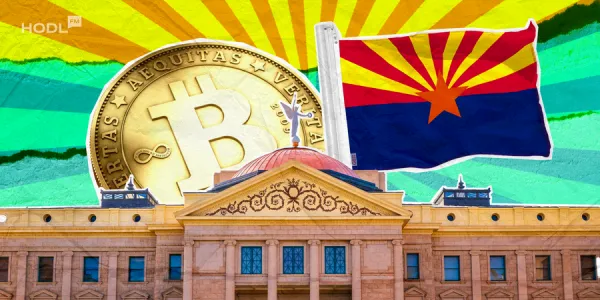Even for those who don’t follow cryptocurrencies as traditional investment options, it’s clear that Wall Street’s interest has boosted the overall crypto market. In light of this, William Quigley, co-founder of Tether, predicts the next wave of ETFs after Bitcoin and Ethereum.

Expect the Next Big Wall Street Trend
Quigley foresees ETFs for other major cryptocurrencies, like Solana and Cardano, driven by Wall Street’s relentless pursuit of profit. Don’t expect the momentum of crypto ETFs to slow down after the approval of spot funds for Bitcoin and Ethereum in the United States.

He added that Wall Street loves “the latest hot trends” because they give them something new to talk about with their clients and to sell their products. But if the momentum eventually wanes, Quigley expects ETF providers to shift their focus to the next big trend.
The co-founder of Ethereum accuses Wall Street of greed, and it’s hard to argue with him. Every time Wall Street packages a new product to sell to consumers, if it’s successful, you can bet imitators will follow. There wouldn’t be any ETFs if Bitcoin ETFs had failed.
We’ll continue to see new ETFs launched until a major pullback happens. Then you’ll see some of these ETFs shut down by the firms that launched them due to a lack of demand.
Bitcoin ETF success
The much-anticipated approval of spot Bitcoin ETFs by the SEC in the U.S. this January marked a significant milestone in bringing cryptocurrencies into mainstream financial markets. These ETFs allow investors to access Bitcoin without directly owning the cryptocurrency, providing a more accessible and regulated investment tool.
This approval has generated significant interest and investment inflows, highlighting the growing recognition and institutional interest in digital assets.
While part of the hype around ETFs was driven by Bitcoin reaching a new all-time high above $73,700 in March, along with the anticipation of the four-year halving event in April, BTC has yet to seriously challenge this mark again in recent months — and this week it dropped to a current price just below $67,000.
Related: Bitcoin ETFs Fuel Parabolic Potential. Analysts Predict New Highs Amid Surging Inflows
However, Bitcoin prices typically rise six months or more after the halving event, as the supply squeeze starts to take effect. We believe historical trends will continue in this direction.
The Path to an Ethereum ETF
The success of the Bitcoin ETF has paved the way for more crypto-related financial products, and the market eagerly anticipated similar developments for other cryptocurrencies.
Expectations for an Ethereum ETF were particularly high, especially after positive signals from regulators. The funds received initial approval in late May but won’t begin trading until the funds’ S-1 registration forms are approved.

SEC Chairman Gary Gensler stated that the approval process for Ethereum ETFs could be completed by the end of the summer.
“Individual issuers are still working through the registration process, which is going smoothly, and I anticipate this will happen sometime over the summer,” Gensler said during Senate hearings on Thursday.
Quigley expressed dissatisfaction with traditional finance’s growing involvement in the crypto:
I was fine with cryptocurrency without Wall Street. Would it be smaller? Sure. But I didn’t feel the need to keep expanding crypto’s size right now.
More Info:
- CME Group is Preparing to Move Top Players by Entering the Spot Bitcoin Market
- What Happens to Lost Bitcoin?
Despite his reservations about Wall Street’s participation, Quigley acknowledged that substantial capital inflows are necessary for significant market growth. While this trend promises to bring more investment into the crypto market, it also introduces new dynamics and risks, particularly if institutional investors retreat during market downturns.
Disclaimer: All materials on this site are for informational purposes only. None of the material should be interpreted as investment advice. Please note that despite the nature of much of the material created and hosted on this website, HODL FM is not a financial reference resource and the opinions of authors and other contributors are their own and should not be taken as financial advice. If you require advice of this sort, HODL FM strongly recommends contacting a qualified industry professional.




